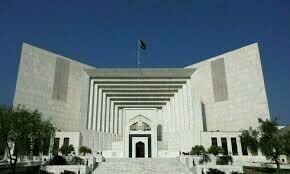ISLAMABAD: As Imran Khan and Tahirul Qadri left their containers for separate meetings with the army chief on Thursday night, leaders from across the political spectrum regretted that things had to come to this juncture, where the military would get involved in a political issue.
The most significant reaction came from a PTI leader.
Former PML-N stalwart Javed Hashmi, who is known for his outspoken opposition to military’s involvement in politics, said “After this, we will not be able to hold our heads high. It is shameful time for all politicians who, despite having the time, could not resolve the crisis on their own”.
Speaking to a TV channel, he said that real democracy would only flourish in the country when politicians were able to make their own decisions. The most one can expect from the army is the role of a guarantor between two parties, said Mr Hashmi.
When pressed, Mr Hashmi explained he was known as “Mr Naraaz” within the party for his propensity towards taking principled stand. He stressed that he would never accept martial law in the country.
“This is end of democracy, the Constitution and supremacy of the parliament in the country,” said retired Justice Tariq Mehmood when he heard of General Raheel Sharif’s intervention to defuse the ongoing crisis.
This is the same Justice Mehmood who was at the forefront of the lawyers’ movement, which was brought to fruition by the intervention of another military chief, Gen Sharif’s predecessor Gen Ashfaq Parvez Kayani.
“I feel no shame in admitting that military intervention was wrong then and it is wrong now. But considering that all political parties in the country were trying to resolve the impasse, having the army chief mediating between the quarrelling sides is something which will be remembered as a moment of collective disgrace for all politicians across the political spectrum,” he said, adding that Gen Kayani’s involvement wasn’t as overt as Gen Sharif’s has been.
“I wonder how, after succumbing to military pressure, Prime Minister Nawaz Sharif will face parliament, which has been supporting him throughout,” he mused.
JI Emir Sirajul Haq had a more cautious response. He told a TV channel that if the army could intercede and end this crisis, well and good, but the military had no role in politics.
JUI-F spokesperson Jan Achakzai had a similar response. “It is a failure of the politicians who could not resolve the crisis. But I welcome any deal that remains within the spirit of democracy and the Constitution of Pakistan,” he said.
PPP leader Syed Khursheed Shah, who is also leader of the opposition in the National Assembly, said he would ask the prime minister why the army chief had to be asked to mediate when nearly all political parties were present in the house and had offered their services to them.
Former Punjab governor and PPP leader Latif Khosa put the onus of the military’s involvement in this crisis squarely on the ruling PML-N’s shoulders. “After killing 14 innocent PAT workers, the Sharif brothers were unwilling even to register their FIR,” he said, adding that the government’s delaying tactics in dealing with PAT and PTI further complicated the situation.
Talking to DawnNews, prominent lawyer and rights activist Asma Jahangir criticised both Tahirul Qadri and Imran Khan, saying that, “Those who had wasted 15 days must be discouraged.”
Nearly all parliamentary parties and politicians pleaded with them, but they did not heed anyone’s advice, she said. “Now, on a single phone call, they rush to Army House.”
She bitterly criticised military’s blatant involvement in political affairs, and said instead of using their proxies to destabilise the system, why don’t they impose direct military rule.
ANP’s Haji Adeel said it is wrong to make the military a political guarantor; parliament is the supreme guarantor. “This is a major failure for all politicians,” he said.
Published in Dawn, August 29th, 2014













































